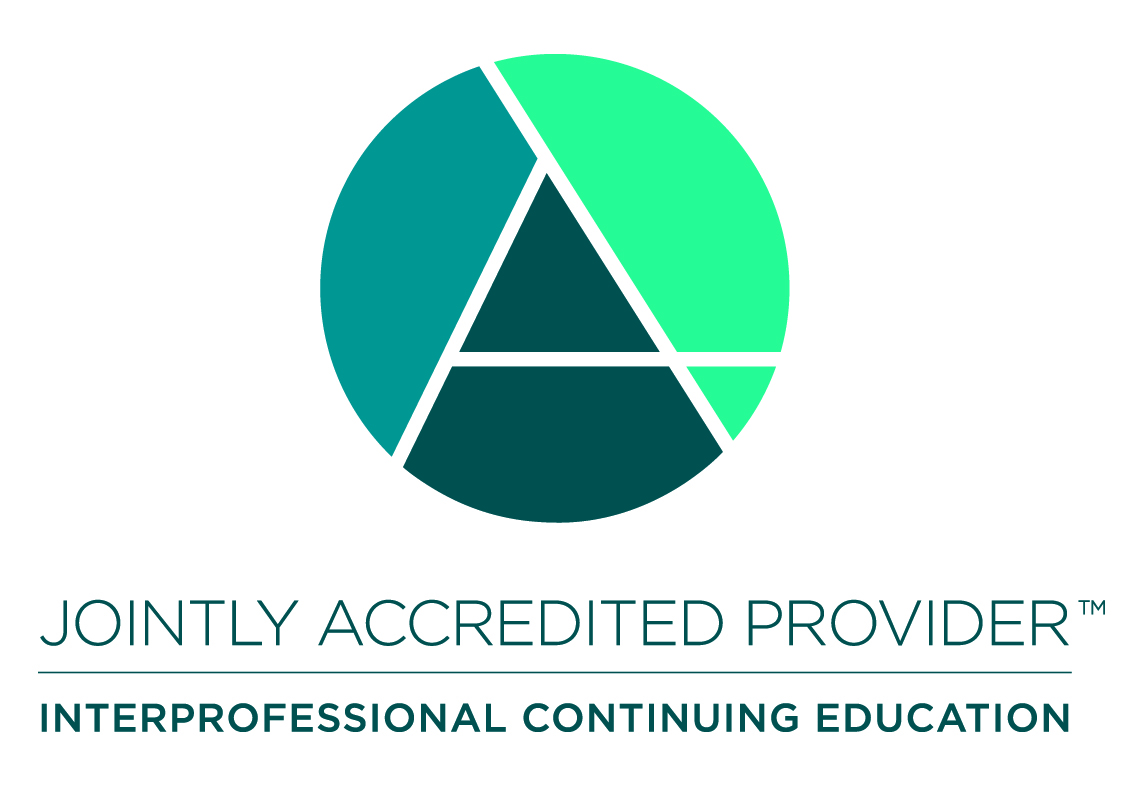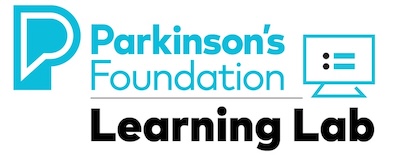Parkinson’s Disease: Foundational Knowledge for Healthcare Professionals
 Individuals with Parkinson’s disease (PD) and young-onset (YOPD) often face challenges within the medical system, resulting in adverse experiences and negative outcomes within the hospital, rehabilitation, or primary care settings.
Individuals with Parkinson’s disease (PD) and young-onset (YOPD) often face challenges within the medical system, resulting in adverse experiences and negative outcomes within the hospital, rehabilitation, or primary care settings.
This course will provide foundational knowledge and strategy recommendations to professionals working with individuals with PD and YOPD. This course discusses symptomatic differences, medication considerations, interprofessional team member roles, non-pharmacological management, stigma and misconceptions for women and diverse communities, and barriers to providing care.
This course will increase knowledge, skills, and performance of medical professionals to optimize comprehensive and population-centered care. Increasing the competency of medical professionals in areas of Parkinson’s related concerns may improve patient health-outcomes, patient safety, and wellbeing.
Syllabus | |
Background Knowledge Medication Challenges Within the Healthcare System Diversity within Parkinson’s Community Allied Health and Interprofessional Approach to Health Promotion Knowledge Check Additional Resources Evaluation Credit and Certificate Claiming | |
Target Audience
This activity is designed to meet the educational needs of:
- Physicians
- Physician Assistants
- Registered Nurses
- Nurse Practitioners
- Psychologists
- Social Workers
Learning Objectives
At the end of the presentation, the learner will:
- Summarize the difference between PD/YOPD, motor/non-motor symptoms, and prodromal symptoms within the clinical setting to provide comprehensive treatment of the condition, and improve diagnostic timeline to promote health, safety, early identification, positive patient experience, and daily functioning.
- Translate commonly prescribed medications, medication efficacy, medication side effects, and the importance of medication timing into clinical practice to optimize safety and functioning of patients with PD/YOPD.
- State the symptomatic differences, stigma, lack of data, and inequalities in care for people of color and women with PD/YOPD to promote equitable care for patients within the clinical setting.
- Interpret the role of allied health professionals within the interprofessional team, benefits of rehabilitative services, and non-pharmacological management techniques to optimize collaboration with rehab services and promote patients' functional outcomes and safety.
 Emily Peters-Tempel, OTDS
Emily Peters-Tempel, OTDS
Course Author
My name is Emily, and I am a 2024 graduate of the Doctor of Occupational Therapy program at Russell Sage College in Troy, NY, USA. I am a Parkinson’s Foundation Ambassador, based in upstate NY.
I became involved in Parkinson’s awareness during my research series at Russell Sage College and my advocacy efforts were inspired through my time working closely with Dr. Kristi LaMonica.My advocacy for PD lies within the scope of occupational therapy. My mission is to provide individuals globally with YOPD access to evidence-based occupation-based strategies, and connect them directly with relevant healthcare and health promotion resources. I advocate for individuals to engage in tasks meaningful to them, increasing activity, and healthy behaviors, and ensuring safe and functional independence for individuals with young-onset, and traditional PD.
My three year doctoral research consisted of research surrounding the functional impact of young-onset Parkinson’s disease, and the development of a symptom management resource containing occupation-based strategies to promote function, independence, and quality of life.
I have developed this course under the guidance of my mentors Dr.LaMonica and Dr.Bernhardt. This course aims to educate medical professionals on nuances of Parkinson’s disease, and provide in depth knowledge on the disease that might not have been obtained during their medical education.
Disclosures:
Parkinson’s Foundation adheres to the ACCME’s Standards for Integrity and Independence in Accredited Continuing Education. Any individuals in a position to control the content of a CE activity, including faculty, planners, reviewers, or others are required to disclose all relevant financial relationships with ineligible entities (commercial interests). All relevant conflicts of interest have been mitigated prior to the commencement of the activity.
Faculty Members
Emily Peters, OTDS has no relevant financial relationships to disclose
Planning Committee
Emily Peters, OTDS has no relevant financial relationships to disclose
Kristi LaMonica, PhD. has no relevant financial relationships to disclose
Becky Bernhardt, OTD, OTR/L, C/NDT, CAPS has no relevant financial relationships to disclose
Content Validator
Margaret J. McCormick M.S.,R.N.,C.N.E. has no relevant financial relationships to disclose
 In support of improving patient care, Parkinson's Foundation is jointly accredited by the Accreditation Council for Continuing Medical Education (ACCME), the Accreditation Council for Pharmacy Education (ACPE), and the American Nurses Credentialing Center (ANCC), to provide continuing education for the healthcare team.
In support of improving patient care, Parkinson's Foundation is jointly accredited by the Accreditation Council for Continuing Medical Education (ACCME), the Accreditation Council for Pharmacy Education (ACPE), and the American Nurses Credentialing Center (ANCC), to provide continuing education for the healthcare team.
Physicians
Parkinson’s Foundation designates this enduring activity for a maximum of 1.25 AMA PRA Category 1 Credit(s)™. Physicians should claim only the credit commensurate with the extent of their participation in the activity.
Nurses
Parkinson's Foundation designates this enduring material for a maximum of 1.25 ANCC contact hours. Participants should claim only the credit commensurate with the extent of their participation in the activity.
Physician Assistants

Parkinson’s Foundation has been authorized by the American Academy of PAs (AAPA) to award AAPA Category 1 CME credit for activities planned in accordance with AAPA CME Criteria. This activity is designated for 1.25 AAPA Category 1 CME credits. Approval valid through January 20, 2026. PAs should only claim credit commensurate with the extent.
Psychologists
 Continuing Education (CE) credits for psychologists are provided through the co-sponsorship of the American Psychological Association (APA) Office of Continuing Education in Psychology (CEP). The APA CEP Office maintains responsibility for the content of the programs. 1.25 CE hours.
Continuing Education (CE) credits for psychologists are provided through the co-sponsorship of the American Psychological Association (APA) Office of Continuing Education in Psychology (CEP). The APA CEP Office maintains responsibility for the content of the programs. 1.25 CE hours.
Social Workers
 As a Jointly Accredited Organization, Parkinson’s Foundation is approved to offer social work continuing education by the Association of Social Work Boards (ASWB) Approved Continuing Education (ACE) program. Organizations, not individual courses, are approved under this program. State and provincial regulatory boards have the final authority to determine whether an individual course may be accepted for continuing education credit. Parkinson’s Foundation maintains responsibility for this course. Social workers completing this course receive 1.25 ASWB credits continuing education credits.
As a Jointly Accredited Organization, Parkinson’s Foundation is approved to offer social work continuing education by the Association of Social Work Boards (ASWB) Approved Continuing Education (ACE) program. Organizations, not individual courses, are approved under this program. State and provincial regulatory boards have the final authority to determine whether an individual course may be accepted for continuing education credit. Parkinson’s Foundation maintains responsibility for this course. Social workers completing this course receive 1.25 ASWB credits continuing education credits.
Available Credit
- 1.25 AAPA Category I CME
- 1.25 AMA PRA Category 1 Credit™
- 1.25 ANCC
- 1.25 APA
- 1.25 ASWB ACE
- 1.25 Completion

 Facebook
Facebook X
X LinkedIn
LinkedIn Forward
Forward